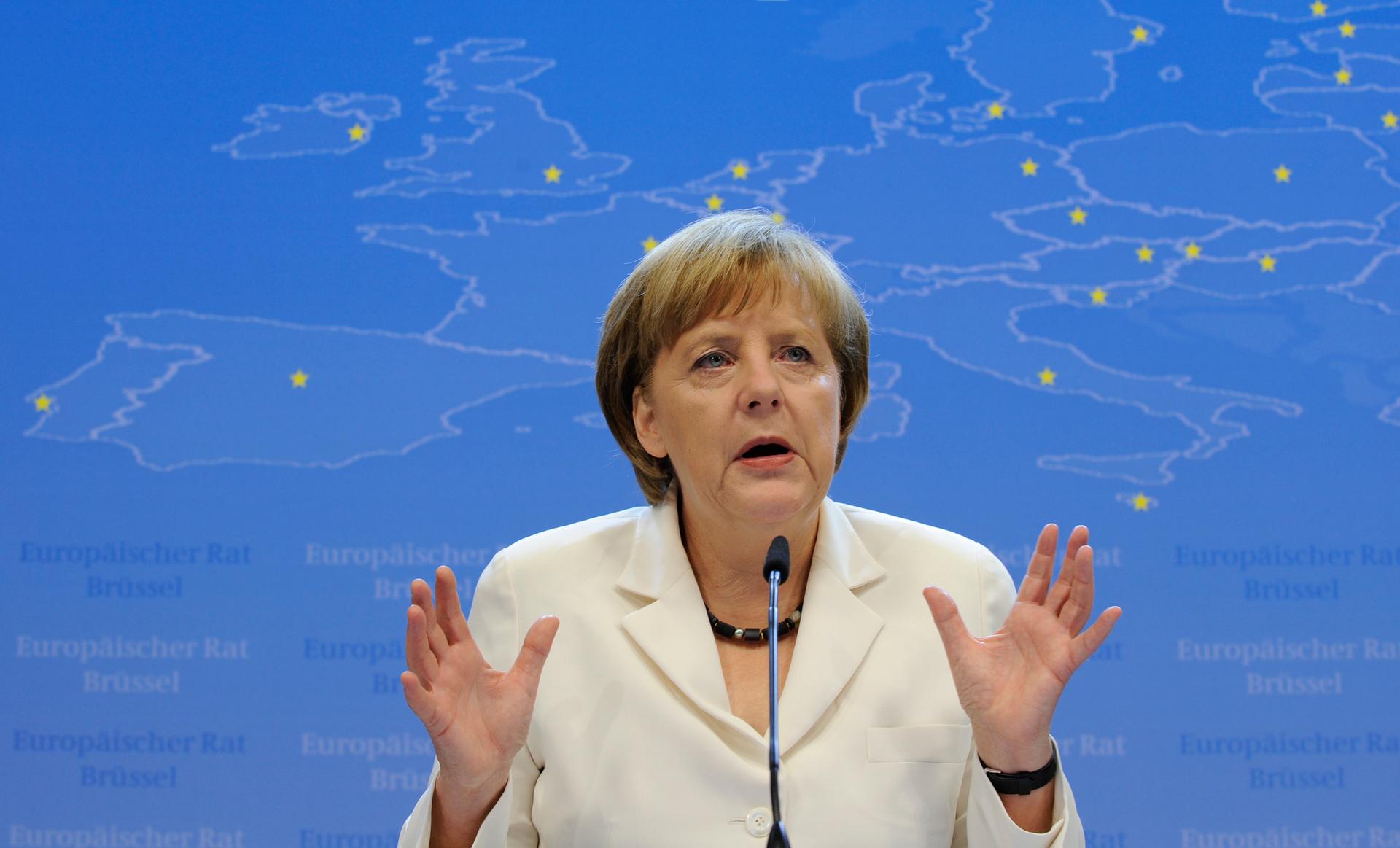Did Merkel just get trounced?
German Chancellor Angela Merkel speaks at a press conference during the second day of the European Union leaders summit in Brussels on June 29, 2012.
So far, investors have argued that German Chancellor Angela Merkel has been the big loser at this week's EU summit.
Italian Prime Minister Mario Monti and Spanish Prime Minister Mariano Rajoy pushed an agenda to depress their borrowing costs and save their banks, forcing Germany to retrace its aversion to bailing out Southern Europe.
Merkel and the Germans want to devote as little money as possible to the crisis effort as they contribute the most to European bailout funds, but bank recapitalization means they'll have to shell out.
Further, Spain's bailout won an important concession as European institutions agreed to drop explicit seniority clauses in public funding provided to the banks.
That said, Germany saved face by requiring a banking authority to be established before Europe proceeds with plans to recapitalize banks through Europe's bailout funds. Here's the exact wording to those contingencies from the EU summit statement released after discussions about this plan:
When an effective single supervisory mechanism is established, involving the [European Central Bank] ECB, for banks in the euro area the [European Stability Mechanism] ESM could, following a regular decision, have the possibility to recapitalize banks directly. This would rely on appropriate conditionality, including compliance with state aid rules, which should be institution specific, sector-specific or economy-wide and would be formalised in a Memorandum of Understanding.
Further, Germany has said that it supports a slow fiscal integration, in which it is not bearing the burden of poor spending policies of other European sovereigns. It has said that it would accept some ultimate debt mutualization once Europe is a true fiscal union, but that is not the current situation. Thus Germany has won a battle by prohibiting debt mutualization from moving forward while still addressing unsustainable sovereign funding costs.
That said, German political aversion to the European Stability Mechanism — Europe's permanent bailout fund that is set to go into effect this summer — has been completely overlooked, with the fund agreeing to take on even more bailout responsibilities. The benefits of these measures will help Spanish and Italian banks at Germany's expense, a policy that is not likely to be well-received by the German public.
These changes to the ESM are already facing resistance in the German Bundestag (legislature).
Regardless, it would appear that Germany has to blink if it wants to save the euro project, and it certainly has here in agreeing to new policies that put public funding at risk.
Follow Simone Foxman on Twitter.
Ask Simone A Question >
More from our partners at Business Insider:
Business Insider: DSK's Wife Has Finally Dumped Him
Business Insider: Did Pakistan's Intelligence Agencies Help Plan the 2008 Mumbai Attacks?
Business Insider: North Korean Defector Draws Gruesome Pictures of Life in the Gulag
Business Insider: A 14 Year Old Girl Died Protecting Trying to Protect a Picture of Kim Jong Il, Now Hailed as a Hero
Business Insider: The Most Employed City in Every State
The World is an independent newsroom. We’re not funded by billionaires; instead, we rely on readers and listeners like you. As a listener, you’re a crucial part of our team and our global community. Your support is vital to running our nonprofit newsroom, and we can’t do this work without you. Will you support The World with a gift today? Donations made between now and Dec. 31 will be matched 1:1. Thanks for investing in our work!
